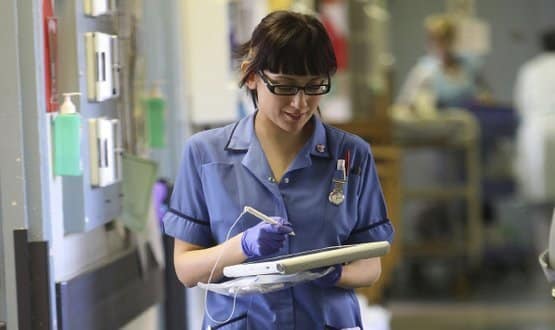NHS England approves updated NEWS early warning score
- 22 December 2017

NHS England has approved the use of an updated version of the National Early Warning Score (NEWS) for use in hospitals across England, in an attempt to improve outcomes for acutely ill patients, particularly those with sepsis.
The National Early Warning Score 2, or NEWS 2, has been developed to improve the early detection of blood poisoning (sepsis). The updated early warning scoring system includes a focus prioritising the detection of serious sepsis in patients and those at high risk of infection.
Outgoing NHS Medical Director Sir Bruce Keogh said he wanted NEWS 2 to be adopted as the standard scoring system across in all hospitals in England by 2019. The first version of NEWS was released in 2012 and has been widely incorporated into bedside observations and vital-sign recoding systems.
NEWS assessments are based on six physiological measurements taken by clinicians in hospitals, including respiratory rate, oxygen saturation, temperature, systolic blood pressure, pulse rate and level of consciousness.
The score is used by doctors and nurses to record a patient’s vital signs. This informs clinicians as to whether a patient is becoming seriously ill and allows them to take appropriate action, such as calling for specialist help, if necessary.
NHS England said adopting NEWS 2 across the organisation was a “major step” towards improving patient outcomes that could save up 2,000 lives per year.
Jane Dacre, president of the Royal College of Physicians (RCP), said: “This update will mark the beginning of a new chapter for NEWS, as with the support of NHS England and NHS Improvement, over the next year NEWS will become the default early warning score for NHS Trusts and ambulances.
“Patients will benefit from its implementation, and staff will benefit from not having to learn a new score each time they join a new Trust. I hope that NEWS will continue its global journey, saving lives across the world.”
NEWS has demonstrated itself to be a highly effective system for detecting patients at risk of falling critically ill, prompting more timely intervention by clinicians.
Since its conception by the Royal College of Physicians in 2012, the system has been adopted by hospitals worldwide.
NEWS 2 now includes a new section for scoring oxygen saturation for patients with hypercapnic respiratory failure and places a higher importance on the recognition of “new” confusion – or delirium – as a sign of clinical deterioration.
Professor Bryan Williams, chairman of the NEWS development group, said: “We developed NEWS to save lives in the NHS. The uptake and impact of the NEWS over the past five years has been extraordinary, and beyond even the most optimistic expectations, especially considering that there was no national incentive or directive to implement it.”



